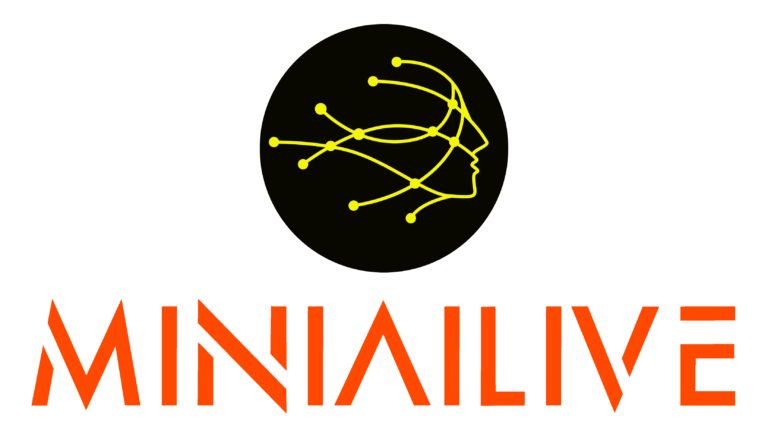Welcome to the MiniAiLive!
Welcome to the ID Document Liveness Detection Docker! MiniAiLive's Complete Document Liveness Detection Solution for Digital Onboarding here! With 70% of fraud in digital onboarding and KYC happening with document fraud—or document presentation attacks—identity verification is a critical line of defense against the financial and reputational damage of document fraud. That’s where document liveness detection software comes in. It detects when an identity document is not genuine but instead a document presentation attack. With our product suite, you can address the three most common presentation attacks universally across all the common types of identity documents anywhere in the world without needing to train on document templates. Try it out today!
Note
- Our SDK is fully on-premise, processing all happens on hosting server and no data leaves server.
- Python 3.6+
- Linux
- CPU: 2 cores or more
- RAM: 8 GB or more
-
Download the ID Document LivenessDetection Docker Image:
Download the Server Docker Image from the following link:
-
Install the On-premise Server:
Run the installer and follow the on-screen instructions to complete the installation. Go to the Download folder and run this command.
$ cd Download $ sudo docker load -i MiniAiLive-IDLiveSDK-DockerImg.tarYou can refer our Documentation here. https://docs.miniai.live
-
Request License and Update:
You can generate the License Request file by using this command:
$ sudo chmod 777 ./MiRequest_IDLiveSDK $ sudo ./MiRequest_IDLiveSDK request /home/ubuntu/Download/trial_key.miq
Then you can see the license request file on your directory, and send it to us via email or WhatsApp. We will send the license based on your Unique Request file, then you can upload the license file to allow to use. Refer the below images.
$ sudo apt install chrony $ sudo chmod 777 ./run_idliveness_docker $ sudo ./run_idliveness_docker /home/ubuntu/Downloads/trial_key.mis 8093 mini-idlivesdk-server
-
Verify Installation:
After installation, verify that the On-premise Server is correctly installed by using this command:
$ netstat -tnpl
If you can see opened your port correctly, the server has been installed successfully. Refer the below image.
POST http://127.0.0.1:8093/api/check_id_livenessID Document Liveness Detection APIPOST http://127.0.0.1:8093/api/check_id_liveness_base64ID Document Liveness Detection API
- URL:
http://127.0.0.1:8093/api/check_id_liveness - Method:
POST - Form Data:
image: The image file (PNG, JPG, etc.) to be analyzed. This should be provided as a file upload.

- URL:
http://127.0.0.1:8093/api/check_id_liveness_base64 - Method:
POST - Raw Data:
JSON Format: { "image": "--base64 image data here--" }

The API returns a JSON object with the ID document liveness detection details. Here is an example response:
We have included a Gradio demo to showcase the capabilities of our ID Document Liveness Detection SDK. Gradio is a Python library that allows you to quickly create user interfaces for machine learning models.
-
Install Gradio:
First, you need to install Gradio. You can do this using pip:
git clone https://github.com/MiniAiLive/ID-DocumentLivenessDetection-Docker.git pip install -r requirement.txt cd gradio -
Run Gradio Demo:
python app.py
To help you get started with using the API, here is a comprehensive example of how to interact with the ID Document Liveness Detection API using Python. You can use API with another language you want to use like C++, C#, Ruby, Java, Javascript, and more
- Python 3.6+
requestslibrary (you can install it usingpip install requests)
This example demonstrates how to send an image file to the API endpoint and process the response.
import requests
# URL of the web API endpoint
url = 'http://127.0.0.1:8093/api/check_id_liveness'
# Path to the image file you want to send
image_path = './test_image.jpg'
# Read the image file and send it as form data
files = {'image': open(image_path, 'rb')}
try:
# Send POST request
response = requests.post(url, files=files)
# Check if the request was successful
if response.status_code == 200:
print('Request was successful!')
# Parse the JSON response
response_data = response.json()
print('Response Data:', response_data)
else:
print('Request failed with status code:', response.status_code)
print('Response content:', response.text)
except requests.exceptions.RequestException as e:
print('An error occurred:', e)Feel free to Contact US to get a trial License. We are 24/7 online on WhatsApp: +19162702374.
Contributions are welcome! If you'd like to contribute to this project, please follow these steps:
1. Fork the repository.
2. Create a new branch for your feature or bug fix.
3. Make your changes and commit them with descriptive messages.
4. Push your changes to your forked repository.
5. Submit a pull request to the original repository.| No | Project | Feature |
|---|---|---|
| 1 | FaceRecognition-Linux | 1:1 & 1:N Face Matching |
| 2 | FaceRecognition-Windows | 1:1 & 1:N Face Matching |
| 3 | FaceRecognition-Docker | 1:1 & 1:N Face Matching |
| 4 | FaceRecognition-Android | 1:1 & 1:N Face Matching, 2D & 3D Face Passive LivenessDetection |
| 5 | FaceRecognition-LivenessDetection-Windows | 1:1 & 1:N Face Matching, 2D & 3D Face Passive LivenessDetection |
| 6 | FaceLivenessDetection-Linux | 2D & 3D Face Passive LivenessDetection |
| 7 | FaceLivenessDetection-Windows | 2D & 3D Face Passive LivenessDetection |
| 8 | FaceLivenessDetection-Docker | 2D & 3D Face Passive LivenessDetection |
| 9 | FaceLivenessDetection-Android | 2D & 3D Face Passive LivenessDetection |
| 10 | FaceMatching-Android | 1:1 Face Matching |
| 11 | FaceMatching-Windows-Demo | 1:1 Face Matching |
| 12 | FaceAttributes-Android | Face Attributes, Age & Gender Estimation |
| 13 | ID-DocumentRecognition-Linux | IDCard, Passport, Driver License, Credit, MRZ Recognition |
| 14 | ID-DocumentRecognition-Windows | IDCard, Passport, Driver License, Credit, MRZ Recognition |
| 15 | ID-DocumentRecognition-Docker | IDCard, Passport, Driver License, Credit, MRZ Recognition |
| 16 | ID-DocumentRecognition-Android | IDCard, Passport, Driver License, Credit, MRZ Recognition |
| 17 | ID-DocumentLivenessDetection-Linux | ID Document LivenessDetection |
| 18 | ID-DocumentLivenessDetection-Windows | ID Document LivenessDetection |
| 19 | ID-DocumentLivenessDetection-Docker | ID Document LivenessDetection |
MiniAiLive is a leading AI solutions company specializing in computer vision and machine learning technologies. We provide cutting-edge solutions for various industries, leveraging the power of AI to drive innovation and efficiency.
For any inquiries or questions, please Contact US














